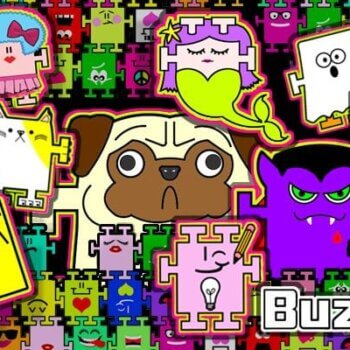What, exactly, is value? Or, in a less philosophical way: how is it that you practically know when you have experienced something of value?
From my experience so far, I believe that our experience of value is deeply related to our true emotions and feelings, and is thus rooted in our common humanity. Building on what I’ve written about previously on innovation (innovation being the simultaneous movement towards new and better) our entire perception of “value” and “better” is inextricably intertwined with our emotional experience of our world. In this perspective, being able to make ourselves happy is a precondition to being able to make others happy, and this includes how we craft products, services and experiences for others.
Let me explain.
Our Emotions
We, as human beings, have a limited number of emotions that we can experience and that motivate us to action. Opinions differ as to what those emotions are, but one popular perspective is that they include happiness, anger, fear, sadness, disgust, guilt and surprise. As practical experience tells us, we can experience these emotions to different levels of intensity. We can also experience several emotions simultaneously, because our brains are highly complex, interconnected webs of living cells, all interacting simultaneously.
The regions of the brain that deal with emotions are quite close to the centre of the brain – closer, in fact, than the regions of your brain that are responsible for our rational, critical thinking processes. The centre of the brain is, of course, closer to the mid-brain and spinal cord, and, thus, it can be conjectured that emotions are more powerful movers of our selves than our rational thoughts. Think about this for yourself: are you more likely to be moved to action by an appeal to your emotions, or by an appeal to your logic? Are you very easily able to commit and see through your New Year’s resolutions, or do you give up on them within a few short weeks (like most of us)? I suppose the answer to that will depend on how much discipline you have over your emotions, and how in touch you are with your emotions.
How dull would life be if you only lived by way of logic, ignoring all of your feelings of happiness, sadness, fear, anger, and so on? Emotion and logic both have their place in our daily lives, and wisdom involves knowing which to give precedence at the right time.
How is it, though, that emotions could possibly lead us to experience what we deem to be “valuable”?
Emotions and Value
What are the things that facilitate happiness for you, personally? Are those not the things that you consider valuable? Tony Robbins speaks of the things that motivate us as human beings, listed here for convenience:
- Certainty/safety – I need to feel safe now, and that I will feel safe in the future.
- Uncertainty/variety – I need to experience new things and encounter unexpected challenges or experiences (note how this contradicts our first need).
- Significance – I need to feel as though I am significant to another person.
- Love/connection – I need to feel as though I am loving others and am loved by others, and/or connected to others.
- Growth – I need to feel as though I am growing and developing as a human being in all of my various spheres.
- Giving – I need to feel as though I am giving back to others in a meaningful way.
The first four needs are basic needs that everyone has and will find some way of meeting, regardless of how healthy or sustainable those ways are. Very few people seem to get to the point in their lives where they realise that they need the last two things: to grow personally, and to give to others. It is, in fact, a need of ours to give to others in meaningful ways! This is, however, quite difficult if you have not yet found healthy ways of having your other, more basic needs met first.
The degree to which we experience those different needs is different for each and every one of us. Some of us need more variety and uncertainty or excitement than others. Some of us have a greater need for significance than others. And others still have a greater need for personal growth. The intensity of each of those needs also varies over time, depending on what’s going on in our lives.
Think, for example, of a situation where, on a rather average day at work, you feel hungry. You start looking around for new something to eat at the cafeteria (it would be “valuable” to you right now to ensure your own longevity and satisfaction by eating something, but you also want a bit of variety), when all of a sudden the fire alarm goes off and people start running and screaming around you as smoke fills the corridors. Immediately, your priorities shift to a different kind of bodily safety or certainty. The last thing you’d probably be thinking of right now is food, or, for that matter, connecting with other people in meaningful ways or about your career growth path (if you’re laughing at this picture right now, it most certainly highlights the practical absurdity of thinking of inappropriate needs for the situation). Your immediate perception of what’s “valuable” shifts to preserving your own life, and you too probably start to run towards safety.
Similarly, your needs shift and change as you go through different phases of your life. When you are young and unattached, you generally have a greater need for uncertainty and variety – to go explore the world and its various options. The moment that you start to “settle down” and start having children, your priorities may start to shift a bit more towards providing you and your loved ones with greater safety. As the children leave the house, you may start once again engaging in hobbies that you have neglected for a long time, and perhaps go back to school, as growing as a person again becomes a focal point for you. As you grow, you also start realising that you have a desire to give back, and so start volunteering at a local shelter, or volunteering to teach others. (This is, of course, a highly stereotypical view, and is not necessarily the healthiest approach to life – that is up to you to discover for yourself).
In all of these examples, it is in the meeting of these fundamental needs of ours that we experience what we intuitively call “value”. That is, of course, given that we’re doing so in healthy ways. And how is it that we know that these needs of ours are or are not being met? Through our emotions, of course! We usually tend to feel happy once our needs have been met, and happily surprised when met unexpectedly. We tend to feel angry, sad or disappointed, or disgusted when they are not met. We tend to feel guilty when we act in ways that hurt others and go against the meeting of our own needs. (An important caveat here: this is not always the case though. When we come from dysfunctional relational backgrounds or have experienced a lot of pain and suffering at the hands of others in our past, our emotional responses to the world need to be taken with a pinch of salt. Psychotherapy is an incredibly effective tool in helping to sift our true feelings/emotions from those generated by PTSD).
Meeting Our Own Needs
Part and parcel of our highly dysfunctional society today is the lack of being able to meet our own needs in healthy ways, while trying to meet the needs of others, thinking that if we meet their needs then they’ll meet ours. This is a particular pattern of dysfunction that sets in in early childhood when parents cannot meet the needs of their children, and children assume that they have to teach their parents to how look after them (an oversimplification of codependency theory, I know). Unfortunately, their parents are so disconnected from themselves and their own emotions that there is no way that they would be able to be in touch with the emotions of their children. Children then preoccupy themselves with their external environments and external distractions, never really learning to be in touch with their own emotions, and so the cycle is perpetuated through the generations. As adults, we preoccupy ourselves with trying to please everybody around us (colleagues, managers, friends, partners) so they will like us and maybe, just maybe, they will help us meet our needs. Unfortunately, meeting one’s own needs is a full- time job for one person, and so the chances of them catering to your needs will be very slim.
This pattern of dysfunction is incredibly common nowadays, and is especially evident by how much codependency, addiction and abuse (physical and emotional) there is in the world today – our world of endless, instantly available distractions. We need to bring ourselves to a standstill, before life does this on our behalf in the form of catastrophe, and recognise that we need to take up full responsibility for having our own needs met and for our own happiness. This, of course, does not mean that we have full control over having our needs met, such as in the example of connectedness and love, where one cannot possibly control another person into loving you or being friends. All we can do is adjust ourselves, and rationally put ourselves in the best position we can to be able to have those needs met, and then be okay with being dependent on another person as they could be on you.
I say all of this because, before we can actually give back to others in meaningful, healthy ways, we have to be able to give to ourselves in healthy, meaningful ways.
Innovating Through Empathy
Once we are regularly in touch with and can meet our own basic needs by creatively coming up with ways of finding happiness in healthy ways, we can then start to look at meeting the needs of others in healthy ways (which, as said earlier, happens to be one of our own personal needs). By being in touch with oneself, knowing oneself and how to work with your own emotions, you can build up your ability to empathise with others. This allows you to feel what they feel, as if you were in their shoes. By being well-versed in looking after yourself and your own needs, you can then more easily help them find ways to have their own needs met.
This is especially relevant and pertinent in a business context. If we, as individual human beings (who happen to be employees as well), are out of touch with ourselves, how could we possibly be crafting products, services or experiences for other people that will make them happy enough, by way of having their needs/desires met, that they will pay you their hard-earned money and keep coming back to you for those offerings?
Coming back to the idea that innovating is about the simultaneous movement towards things that are both new and better, there is the underlying sense that it requires both creativity and an understanding of what’s valuable. Thinking only about the value/betteraspect, my reasoning, as explained above, is that being in touch with your own emotions as guides as to what’s valuable to you will allow you to come up with ways of structuring your life to facilitate greater happiness for yourself. This is the primary way in which you will be able to empathise with others and help to give them that which is valuable to them.
Conclusion
It would appear to me as though innovating on behalf of others and our own personal happiness and fulfilment are inextricably interwoven. We cannot separate our humanity from the business world, because our business, as human beings, is the business, challenge and art of finding and facilitating happiness in a challenging, dynamic world, for ourselves and others. The way in which we help others find happiness through our products, services and experiences, is for us to first find ways of making ourselves happy – a journey on which our true emotions and feelings will be our guides.
Commit yourself to making yourself happy, and being the only person in your life who is truly and ultimately responsible for your own happiness, and you will see that, within a few short months, you will be more capable of seeing what’s valuable for yourself and others. You will also be more capable of facilitating the happiness of others in healthier, more sustainable ways, and in so doing meet your own need to give back to others.
The rest of the challenge of innovating is in being able to facilitate the “new” – a topic which most certainly deserves its own special treatment.
About the Author
This article was written by Thane Thomson, who is currently working for DStv Digital Media in research and development.





























